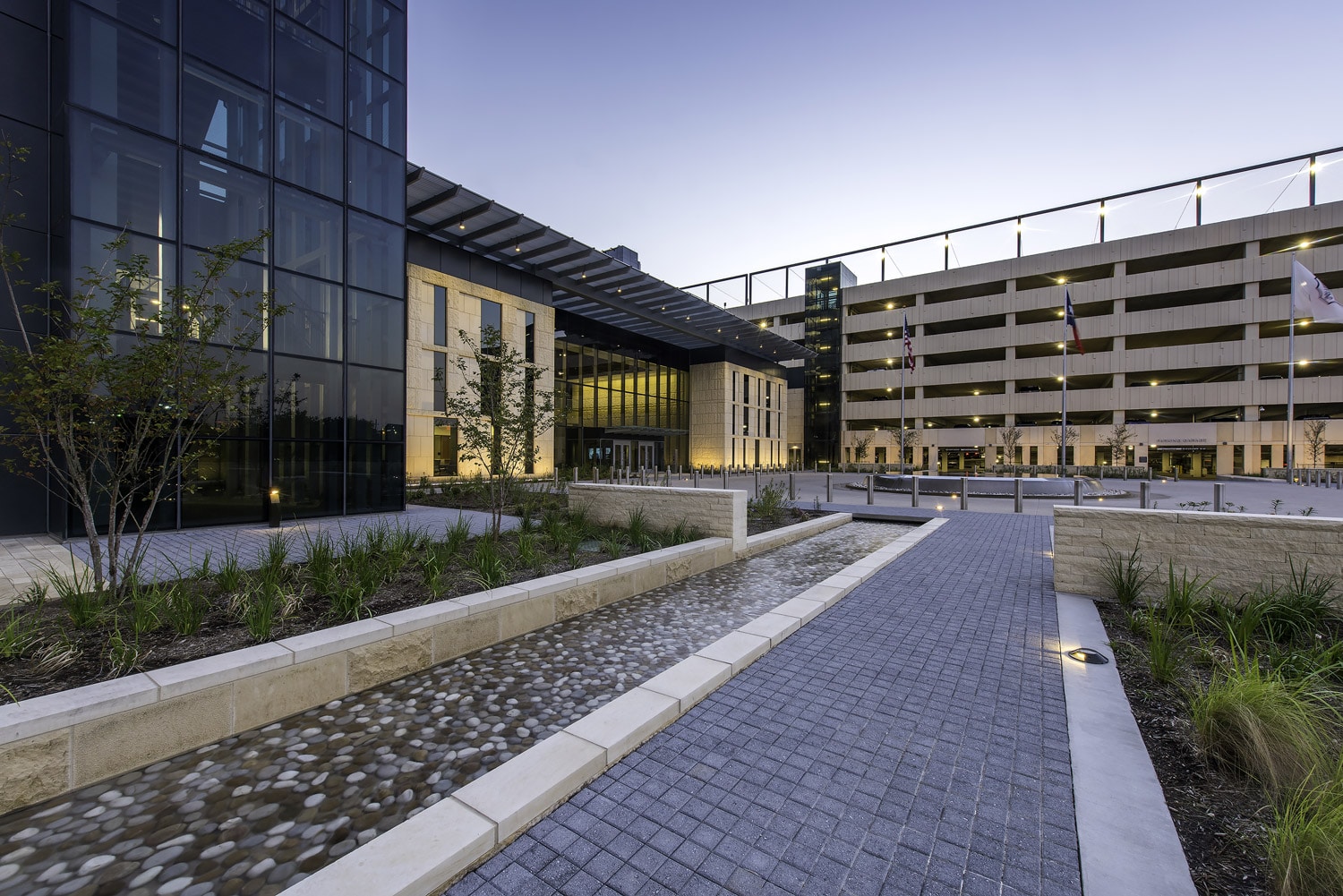
[Photo: Courtesy of Greenscape Pump Services, Inc.]
Stainless steel drains are aesthetically pleasing, functional, and surprisingly green.
Floors are dirty places. Even in some of the most hygiene-critical environments— think food and pharmaceutical manufacturing—the pathogens that live and breed down there need to be washed away before they can harm products and people a few feet above.
John Henry knows a few things about that, having spent many years dealing with food processing plants, while manufacturing industrial baking machinery in a family-owned business. And it’s why today he and Shelia Heller run Greenville, Texas–based StainlessDrains.com.
They knew that by improving upon the commonly used cast iron, PVC, and porcelain drains and strainers bacteria, viruses, microbes, and fungi are less likely to propagate. These things matter in the immediate time frame because they prevent the spread of foodborne illnesses (i.e., sicknesses caused by Salmonella, Listeria, and E. coli), to name a few. The CDC estimates 47.8 million people get sick each year—and 3,000 people die—from contaminated food. But over the long life of stainless steel drains, the health of the earth is protected as well.
FROM OUR MAY+JUNE 2018 ISSUE
The preferred publication of leading green professionals.
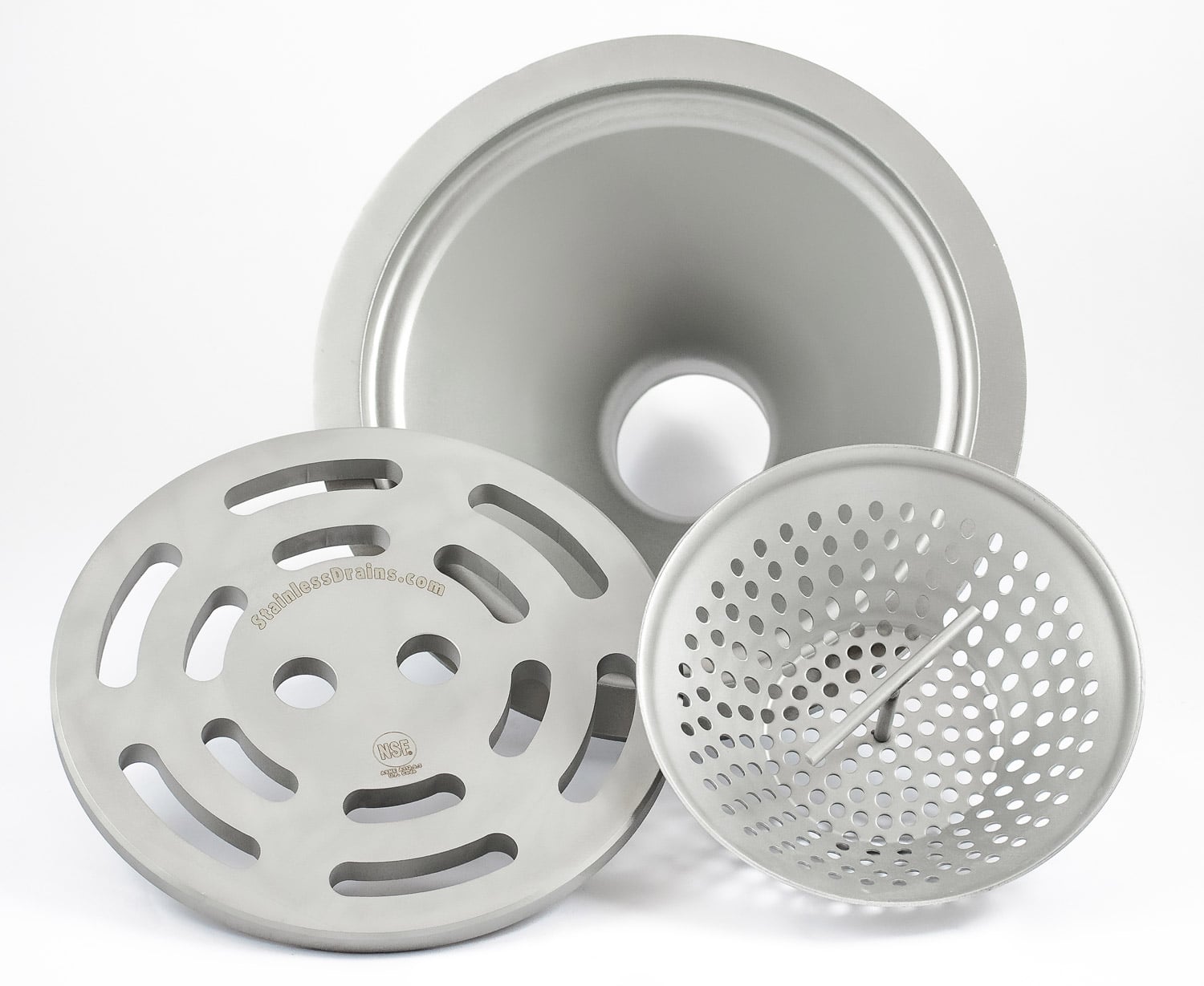
[Photo: Courtesy of Stainlessdrains.com]
1. Reduce Flying Bacteria
Whether in a bakery, chicken processing plant, or dormitory shower, floor drains can be an imperfect means to wash away pathogens—particularly if blocked and backed up. That’s because foot or forklift traffic, or sewer gas, can send microbes airborne and land where human infection is possible. Nearly 28% of floors and drains tested positive for Listeria in a 2004 audit of food processing facilities in one state by the U.S. Department of Agriculture’s Food Safety and Inspection Service.
Stainless steel drains, drain covers, drain inserts, liner drains, trench drains, and epoxy ledges (for epoxy floors) reduce the possibility of flying bacteria because the material doesn’t corrode the way cast iron and porcelain drains do. With easy-to-clean surfaces, free of microbiological hiding places, those foreign agents lose their launching pads
and exit the building.
2. Better Outflow & Effective Drainage
Two product enhancements add to the effectiveness of StainlessDrains.com systems. First, plugged drains mean waste can accumulate on a floor. How do drains plug if screens are used? Irresponsible workers sometimes dump solids that were captured by a drain strainer into the drain anyway instead of in dry waste disposal. The company’s EZ-Stop-Lock uses a stainless housing lock with a magnet key to ensure employees with that responsibility do the task correctly.
Another product, the Eco-Guard trap seal, is used in the outlet connections of floor drain bodies (or inside floor drain strainers). The devices’ flexible silicone sealing ribs permit an outflow as needed but also prevent liquid backflow, sewage odors, and insects from entering the facilities.
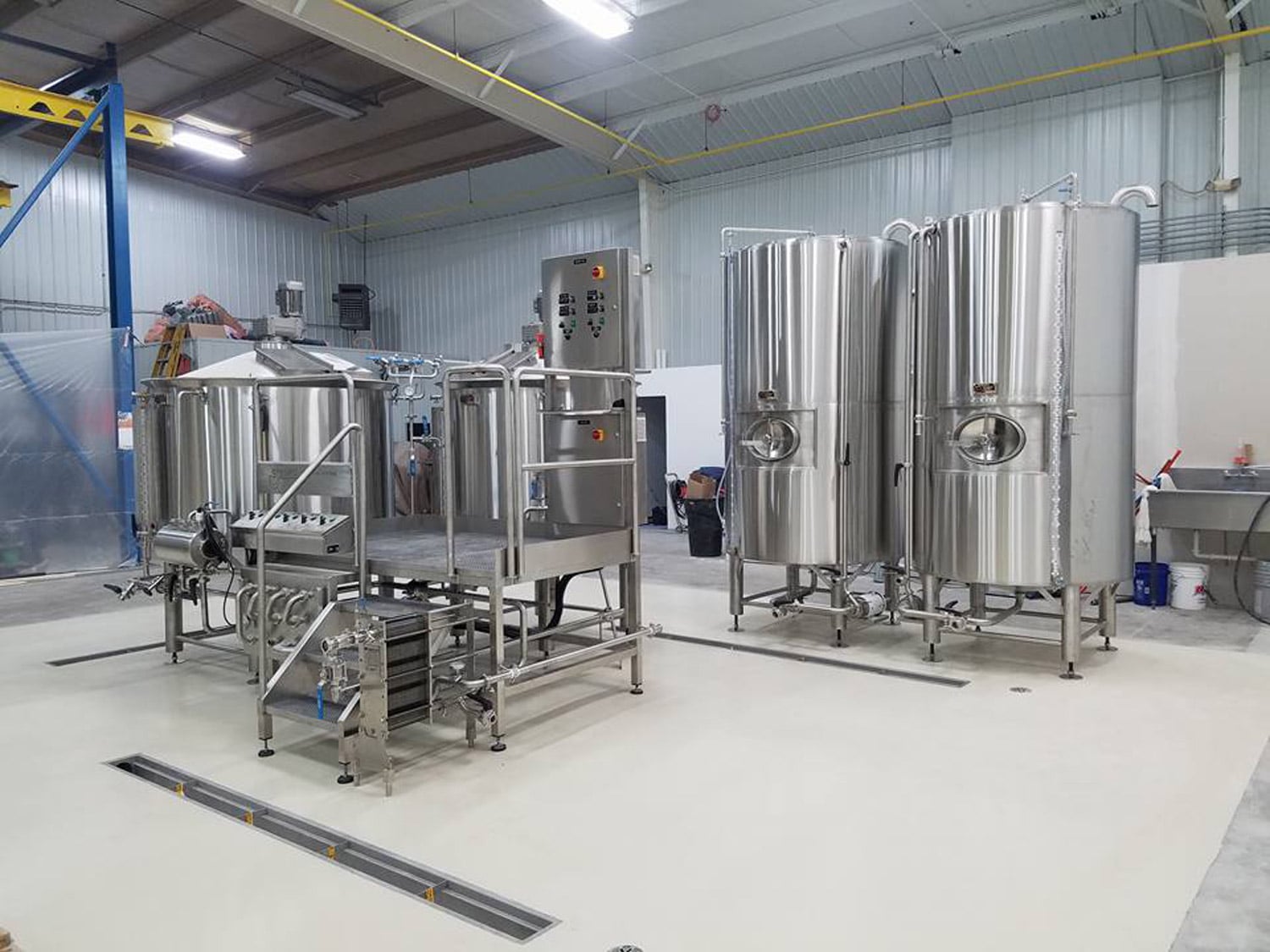
[Photo: Courtesy of Hop Tree Brewing LTD.]
3. Greater Resistance
Composed of iron alloys, there are more than 100 grades of stainless steel. StainlessDrains.com largely sells grades 304 and 316; the higher number indicates greater resistance to the most corrosive liquids (acids, chemicals, salt, vinegar, hydrochloric acids).
“For facilities in environments exposed to acidity or high levels of salt (near the ocean), we would recommend 316 stainless grade, as it offers more anti-corrosion protection,” Henry says.
4. Less waste in the trunk lines and wastewater stream
Managers of municipal wastewater treatment facilities across the globe decry the degree to which solid waste is clogging their equipment. Items such as flushable wipes, hair, plastic bags, and plastic fragments bound up in fat are the most visible. But before items reach that far, trunk lines from a manufacturing or processing facility can become clogged just as easily. “A plugged trunk line can be very costly,” Heller says. “We have heard horror stories that can cost companies in the thousands.”
StainlessDrains.com grates and strainers stop those larger objects from ever leaving the facility. What’s held back can then be disposed of with all other solid waste, outside of the wastewater stream, or sometimes repurposed for agricultural uses.
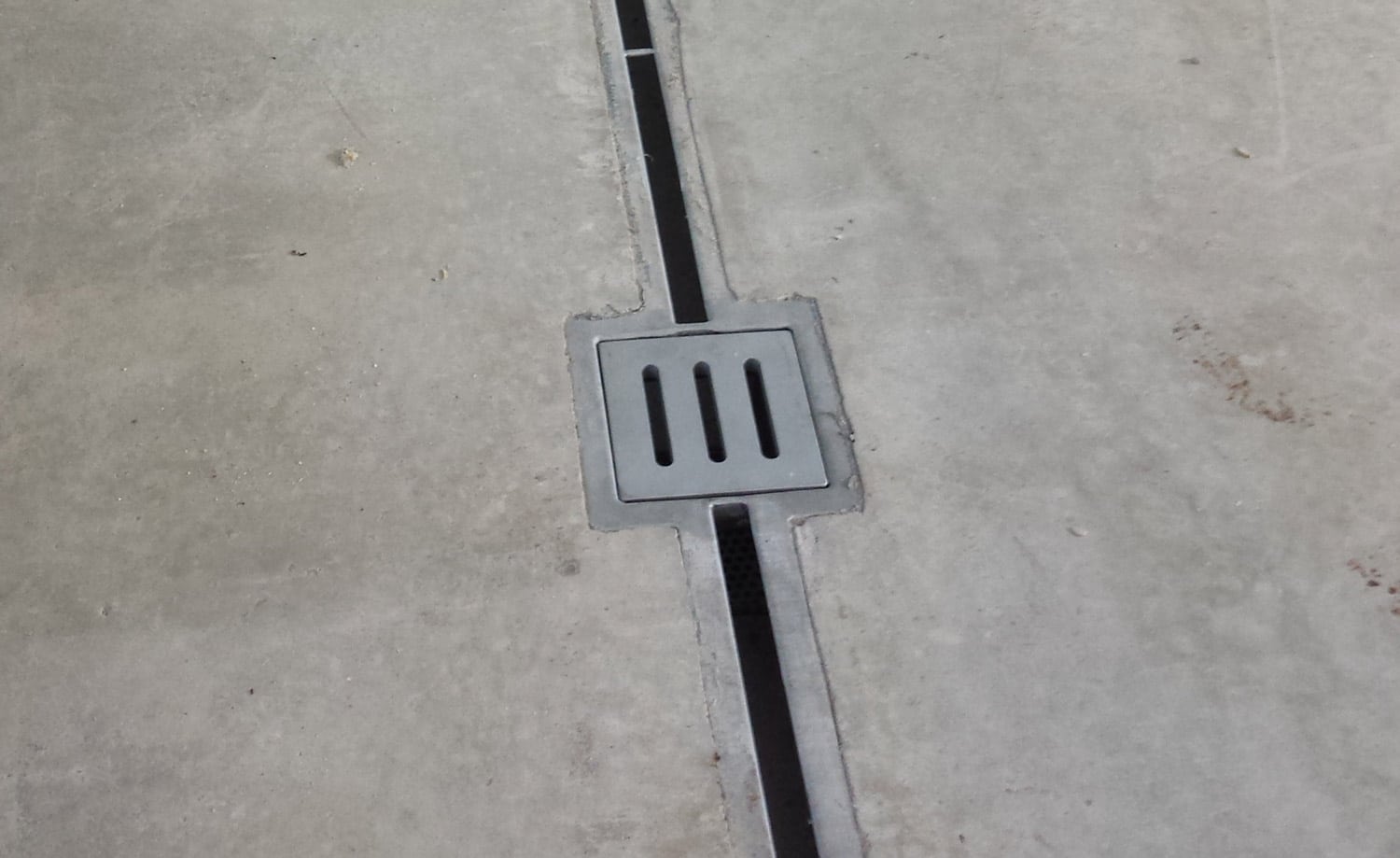
Stainless trench installation in a winery. [Photo: Courtesy of StainlessDrains.com]
5. Customized design & simple retrofits
StainlessDrains.com floor sinks and trench drains products are smart investments in newly built facilities because they have a long life (50+ years). But in old buildings or new, all stainless drain systems are custom designed for each project. In existing plants, it’s possible to reline a drain system with a stainless steel drain insert for a fast, affordable fix of an old porcelain, PVC, or cast iron drain.
6. Stainless steel looks great and you’ll recognize it
It’s possible you’ve seen or even walked on a StainlessDrains.com product many times. Costco warehouse clubs, among many other retail chains, use them in food preparation areas and bathrooms. But don’t be surprised to see the company’s stainless drains in airports, hotels, restaurants, stadiums, hospitals, on landscaped plazas, and around public pools. The aesthetics of stainless steel provide a modern, clean look that complements marquee properties.
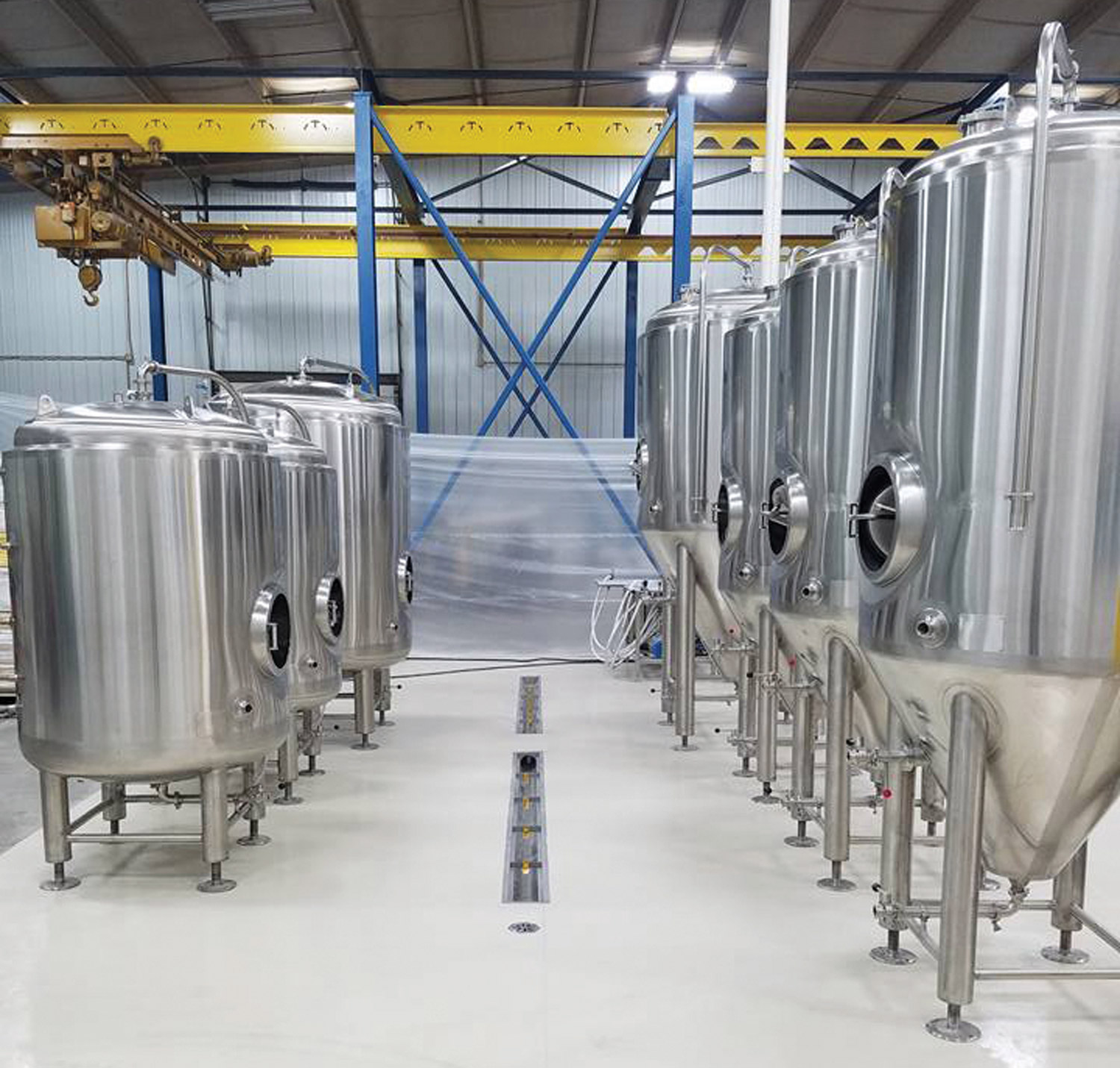
Trench drain installation during the construction phase at the Hop Tree Brewery in Hudson, Ohio. [Photo: Courtesy of Hop Tree Brewing LTD.]
7. Stainless steel is recycled and recyclable
The resilience properties of stainless steel are what make it so popular. It’s resistant to high and low temperatures, it’s strong and durable (corrosion resistant), easy to clean, and long-lasting. But it’s also highly recyclable (90% of end-of-life stainless steel is recycled) and very often contains a high degree of recycled material itself (about 60%).
StainlessDrains.com sends its own manufacturing waste to recycling vendors, who readily reprocess the valuable material (the waste is minimal, however; credit lean manufacturing and laser technology). Every ton of recycled stainless steel saves 1,100 kilograms of iron ore, 630 kilograms of coal, and 55 kilograms of limestone.

